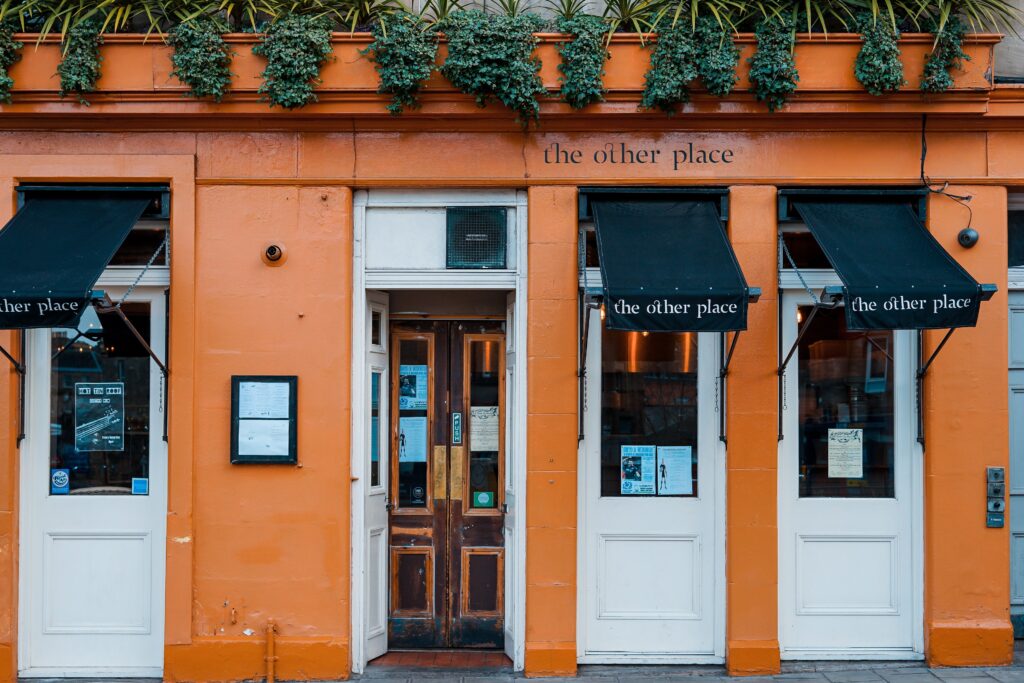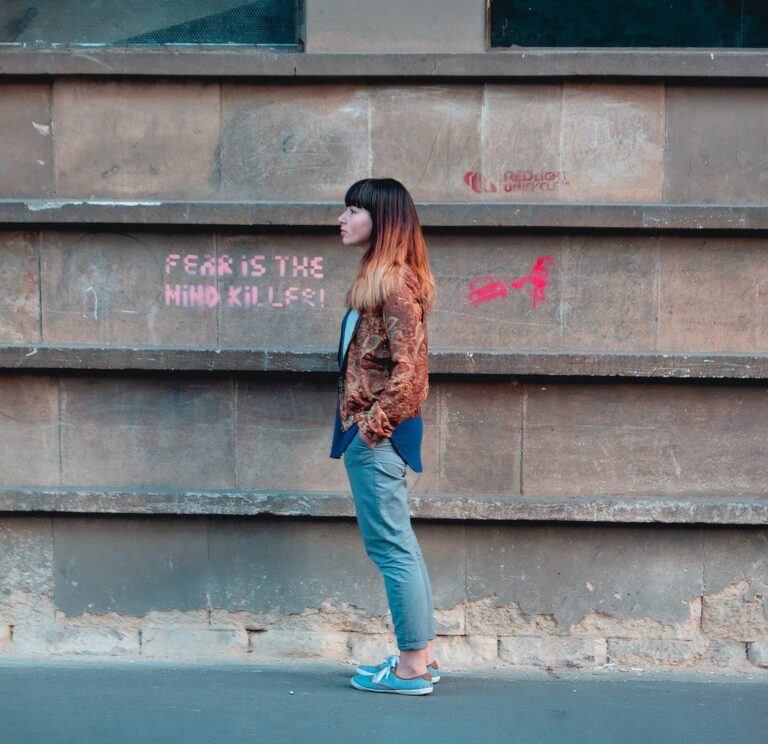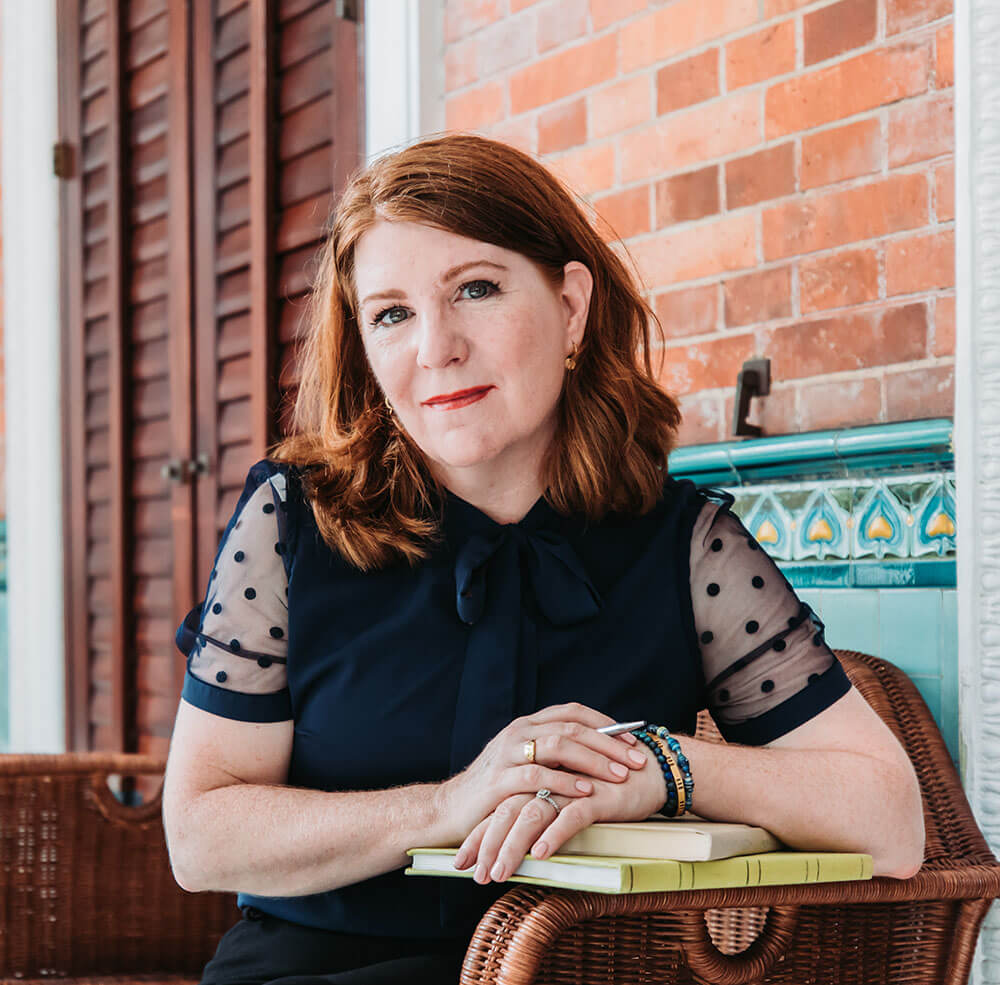
“Where do you want to go for dinner?”
“I don’t know.”
(An actual conversation with my husband, times infinity.)
Sometimes I say ‘I don’t know’ because I don’t really care where we go (but DO I?).
Sometimes I say it because I don’t want to take responsibility for it if it sucks. (Can I see some raised hands if this is you, too?)
The ‘I don’t know’ response shows up quite a few places in my life: what’s my purpose? What do I want to do this weekend? What vacuum should I order from Amazon?
But here’s the thing: I DO know. And I’m guessing we all do, even when we say we don’t. Here’s why we might throw up our hands and push the easy button to say ‘I don’t know’:
1) Decision fatigue
Humans make thousands of decisions a day—a commonly cited report says adults make 35,000 decisions a day. It’s no wonder I have no mental energy left to select a restaurant.
Aside from compounding choices (like the health consequences of eating a giant donut every day for 40 years–yum), most of the things we spend time deciding on will not impact our lives.

Like which socks to wear.
Socks.
You guys.
How many minutes of my life have I spent dithering over SOCKS. This decision has NO IMPACT on my life, my family, community, or world. How can I pick WRONG socks?? (Okay, unless it’s the ones that slip down in my shoe, annoying me all day and then, yeah, that could have a global impact.)
But mostly, the choices we hold in the life-sucking tension of indecision just wear us out, so we have nothing left for the decisions we want to spend a bit more time on.
2) Fear that we will pick the wrong thing
I get this. I really really do. I spent 10 years of my undergrad and graduate career as a pre-med student. I applied to medical school over the course of several years and did not get in. It taught me A LOT about what going the ‘wrong’ direction means.
With reflection, counseling, therapy and coaching (I was pretty rocked by this event), I realized that maybe being a doctor wasn’t for me–and maybe it was. My decision to pursue it at the time seemed like the ‘best’ thing to do—I was very passionate about being a physician and my pre-med advisors thought it was a reasonable possibility. I have made peace with the fact that most pre-med students have to apply to about 30 total schools over 3 years before being accepted, and I quit before getting close to that. So, did I fail, or did I make the choice to quit? I can see now that I decided to quit trying, and that it made sense at the time in the season of life I was in to do so.
It was a ‘good’ decision, based on the information I had at the time.
Here’s what I’m learning: there is no wrong choice. Are there decisions we don’t like the outcome of? Sure. Are their decisions we suffer consequences we don’t like? Yep.
I find that I can now say what most happy and adjusted humans say about decisions that ended in ‘failure’—I learned a lot. Did I want to learn those lessons at the time? Nope. Have I had a use for the many years and resources I put into pursing medical school yet? Also nope. (Though that Masters in Public Health really gave some weight to me telling my kids to wash their hands during the pandemic, so not a total loss…that I am still paying student loans for…)
The problem was that my seeing it as a failure kept me too paralyzed to pick a new vision for my life for a long time. I was afraid to want something again. I didn’t trust myself to know what a ‘good/right’ choice was.
I was afraid to want something and afraid to go after it because I was so afraid of getting my heart set on something, working really hard for it and then failing. Again. Painfully.
3) Fear that if I KNOW, I will have to DO and I might fail.
There is some comfort in not seeing or wanting something in your life. Because if ‘I don’t know’ I never can go after it. Right? I don’t know what to do. (*shrug*)
What kept me frozen for all the years after not getting into med school was my fear of failing again. So, I developed an anti-vision for my life. I wasn’t clear on what I DID want, but I sure knew what I didn’t—I didn’t want struggle and pain. I didn’t want anything but absolute certainty. I wanted total control of the outcomes of anything I pursued next.
Basically, I wanted to live a life with no risk, no possibility of failure or suffering.
HAHAHAHAHA (*wipes tears from eyes*)
(Also, I truly didn’t know what else to do with my life because when I was busy spending all my time and energy trying to get into one particular medical school, I didn’t develop a lot of other interests or skills outside of being an awesome medical school candidate.)
Sometimes with my clients, we start with an anti-vision as a way to get towards a vision. If they don’t want to be so stressed and busy/in the job they are in/alone, we can start from there. What would not being so busy look like? What would a job/career/life/passion that would be thrilling look like?
A vague vision of the future keeps us from ever having to make specific decisions.
(And be aware that NOT deciding is a decision. I know—it seems unfair, but THERE IT IS PEOPLE.)
Lemme clear some of this fear up: you WILL fail. I will fail. We will ALL FAIL.
Not getting the outcome you want happens to us all the time.
Close the wrong tab on your phone? Fail.
Yell at a co-worker/partner/kid? Fail.
Burn dinner? Fail.
Normalizing failure really helped me a lot. It’s a rough road as a recovering perfectionist, but it is a much more humane way to live then beating myself up when I miss an exit. (<-true story, sigh)
How do we stop saying ‘I don’t know?’
Photo by Gabriel González on Unsplash
Answering ‘I don’t know’ is a habit. Try answering, ‘Let me think about that.’ instead. Get better at making decisions. Stop wasting time on decisions that have low stakes. And be brave. Here are some ways to do that:
1) Exercise your decision muscle.
Get better and faster at making choices. Get USED to deciding. I’m not saying to apply this to every decision (job? life partner? Have kids? Have another kid?) but most of those 35,000 decisions we make on a day-to-day basis are pretty low stakes. And we spend A FREAKING LOT of time in indecision.
And I bet you money (not a lot of money, obvi, this isn’t a paid post) that when you are trying to decide what breakfast cereal you want to have tomorrow morning, YOU ALREADY KNOW which one you lean towards. It popped up in your brain right away, probably.
For the love. Just go with your gut and git ‘er done. If it doesn’t scratch the itch—dump it and get another bowl of something else. Stop dithering on low stake decisions.
2) Set up habits.
Every habit you employ means a decision you don’t have to think about. I participated in a fitness challenge that had a commitment to exercise every day for 20 minutes. Once I committed to it, I didn’t have to decide if I was going to exercise, I knew I was going to. What helped me not spend time thinking about it was choosing a time of day, every day, that I would exercise.
So, I created the habit of rolling out of bed and getting right into my exercise clothes. I didn’t have to decide if a) I was going to exercise, and b) when.
(I reduced the “friction” of it in the moment by already selecting a workout the night before and having my exercise clothes laid out, so that helped with the habit being easy, a la James Clear and Atomic Habits).
3) Limit your choices.
Less clothes in your closet means less options to consider. A limited menu for weekday lunch options or dinner choices streamlines your day (and your grocery shopping). I am the primary meal planner in my household and when I got tired of spending an hour trying to find meal ideas and plan the week, I discovered that limiting myself to options from a certain genre of food made it SO MUCH FASTER.
Since then, Mondays=Italian, Tuesdays=Mexican, Wednesdays=Asian, Thursdays=Fish, Fridays=Pizza. When our brains are limited to picking within a boundary, they zero in and get the job done faster.
I knew a really successful businessman who pre-decided he would always use the first available stall in a restroom so he didn’t have to DECIDE which stall to use every time he went into a bathroom. The choice was made. I have acquired that habit myself now (though I amended it to be the first CLEAN stall), but it is amazingly freeing to not.have.to.make.a.decision every time I go into a restroom.
4) Fail faster.
Make decisions faster. I bet the people you look up to in this world don’t dither over socks. They just make a choice and move on. Picture that person you admire or the idealized version of you in the future and step into their comfort with being decisive.
Stop being afraid of failure. Explore and examine why this is stopping you. What do you think failure says about you? Is it true? I thought that if I wasn’t a doctor, I wouldn’t be a good, useful person on this planet. It was not true. Once I stopped being so afraid of failure, I was able to pivot to get to be a person who cared for and served others that is really good and useful).
5) Get a clear vision of what you want your life to look like.
Committing to going a specific direction makes decisions easier. If you know you want to save a certain amount of money this year, your decisions around how you spend your weekend or if you bring your lunch to work are probably clearer. Meaning, you know what choices are going to be in alignment with that vision of what you want. If you know you want a healthy romantic relationship, there are decisions you will make on a daily basis that will align with that happening.
A clear and specific vision helps show the way and creates a boundary for your brain to work within. It helps you make decisions faster and more ‘good’ decisions—decisions that move you in the direction you know you want to move it.
(And if for some reason you don’t get into medical school and you have a major life pivot, might I recommend reflection, counseling, therapy and coaching as a way to normalize the human experience of failing so you can be brave and go again.)
(BTW, what I want for dinner is tacos.)





